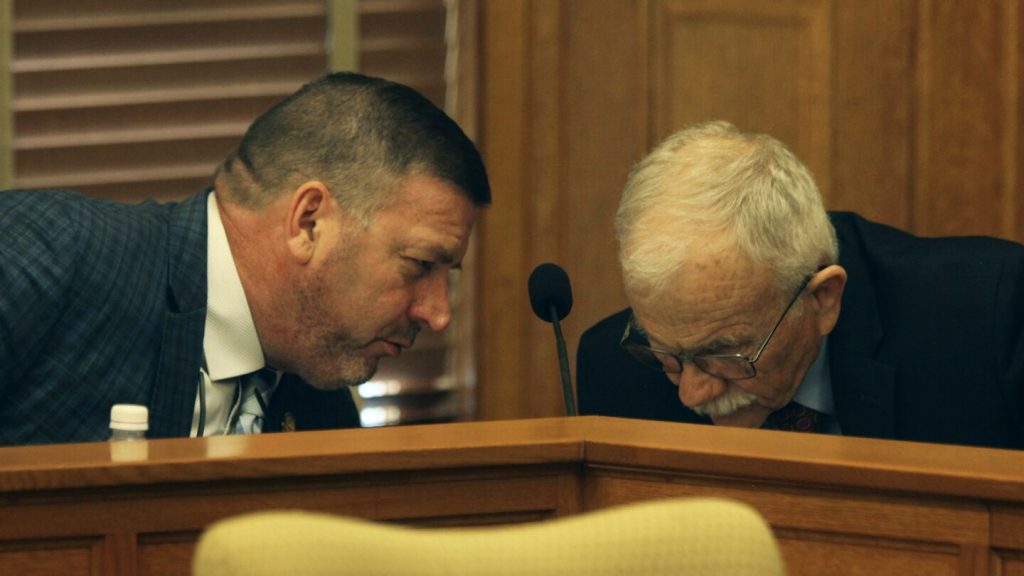The Republican lawmakers in Kansas have proposed a bill to eliminate the three-day grace period for voters to return mail-in ballots after polls close. The legislators argue that allowing ballots to be counted after Election Day undermines people’s confidence in the election results, even though there is no evidence of fraud or mistakes resulting from this practice. The Republican-controlled Legislature is expected to take final votes on the proposal this week, after making concessions in the hopes of securing enough votes to override a potential veto from the Democratic governor. The push to end the grace period comes as election conspiracy theories gain traction within the Kansas GOP, with baseless claims of fraud and support for former President Trump’s false assertion that the 2020 election was stolen.
Despite the concerns raised by some rural Republicans about ending the grace period, the latest version of the proposal includes provisions aimed at winning over skeptical lawmakers. These provisions include extending the advance voting period by two days and requiring county offices to be open for advance, in-person voting for at least four hours on the Saturday before an election. The goal is to secure the two-thirds majority in both chambers needed to override a potential veto from the governor. Voting rights advocates warn that restricting the time for voters to return their ballots could disenfranchise marginalized populations, including low-income individuals, people with disabilities, older voters, and people of color.
Republican Sen. Mike Thompson, the lead negotiator on elections legislation, acknowledges the possibility of a gubernatorial veto and the need to secure sufficient votes to override it. The bill faces opposition from Democratic senators, who argue that the three-day grace period was effective in ensuring that all eligible votes were counted. Last year, Governor Laura Kelly vetoed a similar bill, citing concerns about disenfranchising voters, and the Republican leaders did not have enough support to overturn her veto. The recent efforts by Republican lawmakers to end the grace period have triggered debates about the impact on voter access and potential disenfranchisement.
The proposal to end the grace period has also sparked discussions about the validity of mail-in ballots without postmarks to confirm when they were mailed. Some Republicans claim that local officials cannot legally count these ballots, leading to the potential disenfranchisement of voters. The state has not collected data on the frequency of such incidents, but the Secretary of State’s office has requested county officials to compile this information. While Secretary of State Scott Schwab, a Republican, has not taken a clear stance on ending the grace period, Democratic Sen. Oletha Faust-Goudeau suggests that adding a measure to address ballots without postmarks could resolve this issue. The ongoing debates highlight the complexities and implications of changes to election laws and policies in Kansas.















